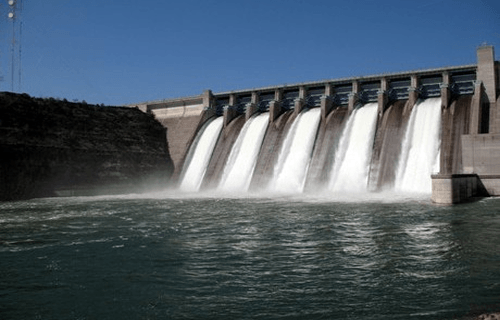
The contract for expansion of largest single hydropower station in Nigeria, the $3.2 billion Mambilla Hydropower project, signed in 2007, has risen to $6 billion due to inflationary trends.
The 34-year-old hydroelectric power project in Taraba State has also suffered a major threat buoyed by massive landslide, which has also put the 3,050 megawatts generation capacity from the plant in jeopardy.
The Mambilla hydroelectric power project in Taraba State, initiated in 1982 to serve as the largest single hydropower station in Nigeria, is also, according to the Economic Con-fidential, being faced with “several other threats” including “bad roads.”
The contract for expansion of the plant was awarded on May 28, 2007, at $3.2 billion to China Gezhouba Group Com-pany Limited (CGGC) and another Chinese consortium, Sinohydro.
The Chinese firms are expected to provide 70 per cent of the sum, while 30 per cent would be provid-ed by the Federal Government of Nigeria. The current six biggest thermal stations in the country have a total capacity of 3,030 megawatts, which is still far less than Mambilla’s 3,050 megawatts.
Due to various factors, the project was suspended during the previous administrations. In an effort to ensure the speedy completion of the project, President Muhammadu Buhari was in China this year to seek the assistance of Chinese government, the major financier for the power station.
Recently some foreign engineers, in company of government officials on an inspection visit to Taraba State, refused to proceed further to Barup, the project site due to bad roads damaged by massive landslide.
Other access roads are bushy that is only accessible by bikes while the rivers have no functional bridges. All entreaties by officials and members of the local community were not heeded by the foreigners who insisted that they would not continue the journey on dangerous paths.
A source at the Federal Ministry of Works, Power and Housing was quoted as saying that: “The minister, Mr. Raji Fashola, has shown keen interest in ensuring the completion of the project because of its potential to add 3000MW to the grid through hydroelectric project, rather than expensive gas plants.
“The ministry is working towards assessing the condition of the roads for immediate solutions. We are all aware that the project would provide employment opportunities and is expected to boost national economic growth.”
Also concerned about the development, former President Olusegun Obasanjo urged Buhari to immediately complete the hydropower project to increase the energy potential of Nigeria and pave the way for more development. Obasanjo, who was speaking with newsmen in Jalingo, the Taraba State capital, said that the project would be of great benefit to the region and to Nigeria, and as such, must be quickly completed.
He added that the cost of completing the project was rising by the day, stressing that it would be better to complete it now than wait for when it would be more expensive.
A community leader and Chairman of Mambilla Plateau Legacies Forum (MPLF), Mallam Ibrahim Ismail Sadiq, appealed to the federal and state governments to take urgent measures at addressing the problems of the roads and open up the potential of the plateau.
He said that the surrounding communities that are borders to Cameroon Republic are on the verge of being cut off from Nigeria as a result of the landslide that occurred on the only road linking Mambilla Plateau with Taraba State and Nigeria as a nation.
He said: “Many foreign investors are reluctant to ply the dangerous roads that are dilapidated by landslides while the rivers could not be accessed by vehicles due to lack of functional bridges.
“Apart from the potential to generate power supply, Mambilla Plateau offers attractive settings worth of massive investments than anywhere in Nigeria because of its unique physical and conducive climatic conditions for human settlement and cattle breeding.”
The Mambilla Plateau is high grassland with an average elevation of 2419m (5249ft) above sea level, making it the highest Plateau in Nigeria, which occupies an area 9389km. It has cattle ranches, tea plantation and rolling glassy hills.
It is a home to some rare species of birds and animals. The highland is also home to Nigeria and West Africa’s only highland tea plantation and production.
– New Telegraph